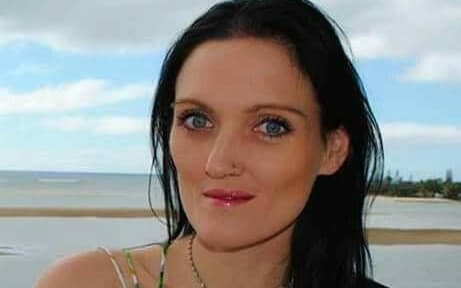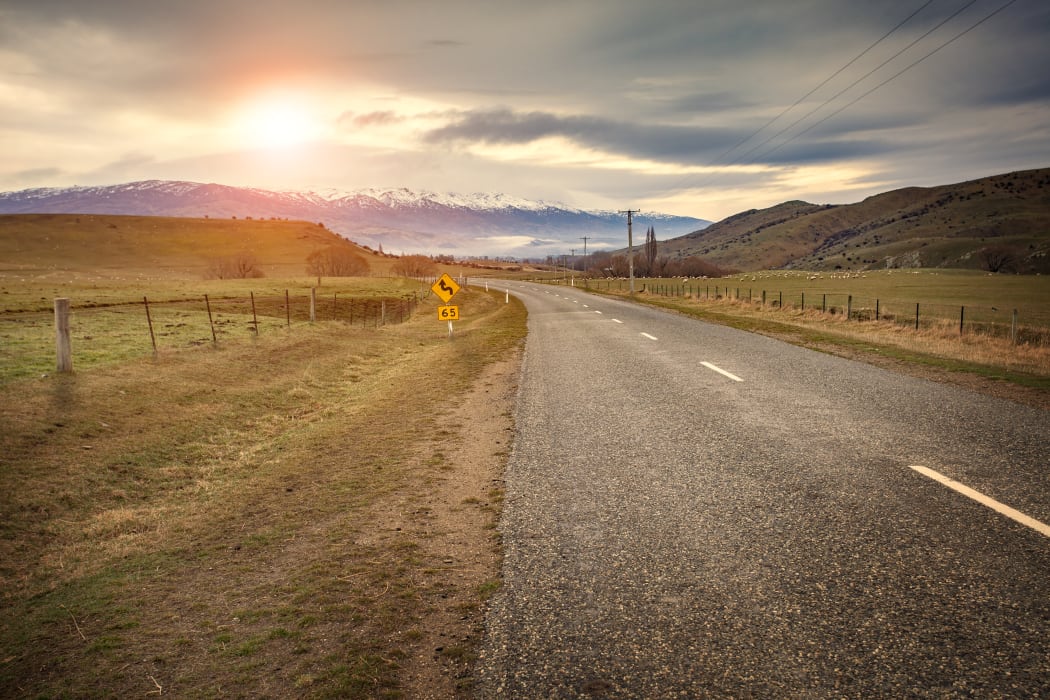The son of an Australian tourist who died on a remote highway in Southland says his mother's death still haunts him and he has not forgiven the man she was last with before she died.

Tamara Maree Schmidt died on a remote highway in Southland in 2015. Photo: Supplied
Tamara Maree Schmidt was holidaying in New Zealand in October 2015 with her partner, Richard Konarski.
The pair had a heated argument on the night of 25 October and, after it became physical, Ms Schmidt left their campervan and walked into the darkness on State Highway 1 near Bluff.
Shortly before 1am on 26 October a motorist travelling towards Bluff felt a bump as he rounded a corner and, after turning his vehicle around, made the shocking discovery he had run over the 37-year-old Brisbane mother-of-four.
The circumstances leading up to her death had remained a mystery to the public.
Police arrested and charged Mr Konarski with assault, but cleared him of wrongdoing or involvement in Ms Schmidt's death. Last year he was granted a discharge without conviction for the assault, which took place in the campervan before Ms Schmidt fled into the night.
This week RNZ obtained a copy of the coronial findings.
Coroner Marcus Elliot has ruled Ms Schmidt likely died as a result of the injuries she sustained when she was struck by the car. However, she was highly intoxicated and had consumed enough sleeping pills to overdose - though the coroner did not rule her death was a suicide.
Ms Schmidt had taken Mr Konarski's prescription Temazepam with her when she left the campervan, the coroner said.
She consumed the sleeping pills by herself in the darkness.
"I have concluded that the evidence does not reach the threshold for a finding that Ms Schmidt died by suicide," Mr Elliot's findings said.
"Although she took Temazepam at a level higher than what would have been expected for therapeutic use, the ingestion was unwitnessed and it is not clear that she took the drugs with the intention of ending her life.
"Although it is possible that she deliberately placed herself on the road...it is also possible that the combination of the high concentration of Temazepam with significant alcohol meant that she simply collapsed. Given what [the pathologist] described as her 'profound intoxication' it also possible that she lay down on the road without appreciating exactly where she was.
"It is therefore not possible to reach a conclusion about whether she formed an intention to end her life. It is also not possible to make a finding about whether she lay down on the road then became comatose or just collapsed in that particular location on the road."
Dream holiday goes wrong
Ms Schmidt and Mr Konarski arrived in New Zealand on 19 October and visited Te Anau and Queenstown.
According to her son it was the first time she had left Australia.
On 25 October, the pair dined together in Bluff before planning to head to Invercargill for the night, where they had rented a site for their campervan.
They began making their way back to Invercargill shortly before 9pm.
"As we drove back towards town I had to pull over once or twice around the shops in the main town centre [of Bluff] because we were arguing," Mr Konarski later told police.
"I had to swerve over two or three times and stop on the side of the road but I can't tell you the exact locations I stopped. Tamara was at one point damaging a table in the back of the campervan so I stopped and pushed her down on to the bed to stop her damaging it."
A second altercation followed.
"At one point she hit him in the left arm with a wine bottle. He stopped again, and held her in a headlock. After she was released she fell back between the van seats and temporarily blacked out," the police summary of facts outlining the incident said.
Mr Konarski told the district court Ms Schmidt also slapped him with an open hand and that slap led to him restraining her. He stated it was in self-defence and she blacked out due to falling over and hitting her head because of her intoxication - not because of the headlock.
"Following this, Ms Schmidt yelled 'Stop the car,' while grabbing the sliding door. Mr Konarski stopped the vehicle as he feared she would jump out," the coroner's findings said.
She stormed off with a cup of vodka, came back about five minutes later, got her possessions and left again. Mr Konarski said it was the last time he saw her.
He searched for her for about an hour before returning to Invercargill.
At about 10pm, a couple, Eve Fowler-Stockwell and Dave Stockwell, drove past Mr Konarski parked on the side of the road and Ms Schmidt walking down the road about 500 metres further along.
"Dave then said to me do you think she is all right and I said to him she probably came out of that campervan," Mrs Fowler-Stockwell told the coroner.
"I thought they must have had a domestic due to the time of night and the way she was walking. I then said to Dave he [the man in the camper van] will probably come back and pick her up."
They were among the last people to see her alive.

Photo: 123rf
'She will never come back. I have to live with that'
Ms Schmidt's son, Jack Caughey, told RNZ this week that the coroner's findings and exoneration of Mr Konarski made for difficult reading.
"There's really nothing for me to say," he said. "There's a lot of things I'd love to say but it wouldn't get me anywhere.
"It wouldn't change the outcome. She will never come back. I have to live with that. And he has to live with the guilt."
Mr Caughey said he had not heard from Mr Konarski since his mother died.
The police investigation found there was evidence Ms Schmidt had spent some time before her death huddled by a tree about 50 metres off the road and she had likely consumed the sleeping pills while there.
The coroner stated about this: "The fact that her bags were found near a tree 48 metres east of the road suggests she might have been hiding from him, although it is not possible to make a finding about this".
But Mr Caughey felt differently about the evidence: "It's sad to know that her last moments were in fear of him," he said.
"Lost somewhere overseas all alone. I don't blame Tamara or the man that hit her. I blame Richard."
Unclear if alerting police could have saved her
Mr Konarski did not contact police to report her missing.
He returned to Invercargill arriving at the camp site sometime between 10.30pm and 11pm.
He found a police cordon in place about 7am the following morning when he returned to search for her.
The coroner did not make any findings about what the outcome of alerting police might have been, saying it would be speculative.
"I inquired with the police what their response would have been if Mr Konarski had reported Ms Schmidt missing that night," the findings said.
"The police informed me that, in the first instance, this would have prompted the communications centre to dispatch a police car to carry out an initial search of the road and roadside in the area where she was last seen. If she had remained missing, a search and rescue advisor would have become involved the next morning.
"Ms Schmidt was walking in the vicinity of farmland bordering the highway. This area is dark and there is no artificial street lighting. At one point she was 48 metres off the road near a tree. It is therefore uncertain and speculative whether a search by police that night would have located her.
"[She was] ran over . . . at 12.45am, however, she may have already been dead at that point due to the effect of alcohol and drugs. There was therefore only a narrow period of time in which she could have been located before her death.
"In these circumstances, there is no basis for any coronial comment or recommendation."
Coroner Marcus Elliott said Mr Konarski "cannot be held responsible for the fact that she died after leaving the campervan".
"The evidence indicates that Ms Schmidt left the campervan of her own volition, albeit following an argument. There is no law which states that a person must search for an adult who has walked off or, if they do search, how long that person should keep searching."
In conclusion he offered his condolences to Ms Schmidt's family and Mr Konarski.
Attempts to contact Mr Konarski this week have been unsuccessful.



